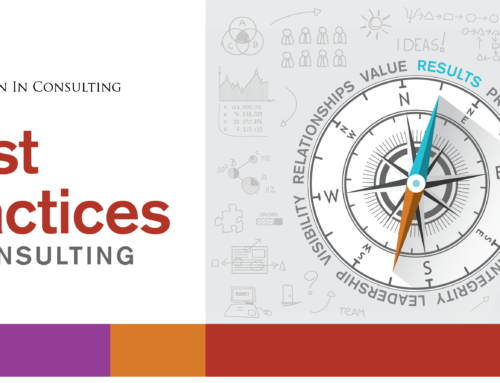I just finished reading an article on Raintoday.com (yes, their weekly newsletter just came out, featuring five of the year’s best articles on better serving your clients) that focused on “the power of taking your clients interests to heart.”
I found this article interesting on a number of levels, but I’ll limit my discussion to two:
Motives Matter a.k.a. Doing What’s Right
First, the whole concept is a no-brainer to me. It’s how I operate. When I was employee, I made decisions based on what was best for the company, not necessarily what was best for me. Sometimes this didn’t result in the best situations for me, but in hindsight I’d make the same decision again — because it was the right thing to do. It’s what I owed my employers, and it’s what I owe my clients.
The author (Charles Green) of the article wrote that this isn’t a matter of ethics, but rather a simple fact of trust. However, I’d argue it is a matter of ethics, or at least a matter of doing what’s right. This is so hardwired into my system that I get very annoyed when people don’t do what’s “right.” And isn’t doing what’s right a matter of ethics? For me, it goes back to the golden rule, “Do unto others….” I simply treat my clients the way I would like to be treated. I treat their business as if it were my own. It’s what’s right.
Now that said, does that mean I never make mistakes? That I never get irritated? Heck no. Anyone who knows me would tell you that. But my governing principal is doing what’s right by my clients — and that includes telling them when it doesn’t make sense to have me do something for them. And since 99 percent of my business is word of mouth, it also is a good business practice — I’d argue the best best practice you can follow. This echoes Charles Green statement that “being trusted is a very low-risk, high-return strategy.” But doing it just to boost your profits is false.
Relationships and Fake Trust a.k.a We Cannot NOT Communicate
In Charles Green’s article, he writes that “When client focus becomes a tool for seller profit improvement, clients notice and become cynical. Lately, the language of client focus is adopting the language of relationships, fostering yet another layer of cynicism…. If we can’t trust the meaning of the words a company says, then we can’t trust the company saying them.”
I don’t disagree. To me, this is a no brainer. But obviously it isn’t so simple, because many companies do seem to take a seller-profit-improvement approach to client focus. The reason I found this component interesting is probably due to my communication background, studying how humans communicate and why some rhetoric works and some doesn’t.
We cannot NOT communicate is why fake trust or seller-profit-improvement approaches don’t work. It’s a phrase I fell in love with in my first interpersonal communication class; it’s also my company tagline. It says a lot, really. We’re always communicating, even when we’re not saying anything. What we don’t say can often be more telling then what we do say — that’s why fake trust doesn’t work.
Words alone definitely don’t carry the message. All the nonverbal “stuff” says a lot more. There are a lot of studies (sorry, none quoted here, all my books are packed away) 😉 that show that if words say one thing and tone or body language say another, the audience will believe the latter over what’s said. So it stands to say that just speaking client-focused language isn’t enough. Most people are astute enough to see past what you’re saying to how you’re acting. If they don’t match, they don’t trust you. And if they don’t trust you, they won’t buy what you’re selling.
Anyway, it’s a good article to read, great food for thought. I’d love to hear what all of you think.
Read, “Motives Matter: The Power of Taking Your Client’s Interests to Heart“









I loved the article and truly believe that this approach is what builds solid business relationships. Honesty and trust, which is often tied, especially in consulting, with getting results that matter to the client is the basis for this long term commitment. It takes a great deal of understanding and displacement of self to get into your client’s head (and heart). So, it’s inevitable that you cannot tackle your mandate without using the soft skills necessary to get there. What we’re really aiming for is a relationship that keeps on building, and of course, that will last a very long time. But this is pretty common to those of us with a passion for this kind of stuff- as for the money; it’s the natural step that follows.
Lucy